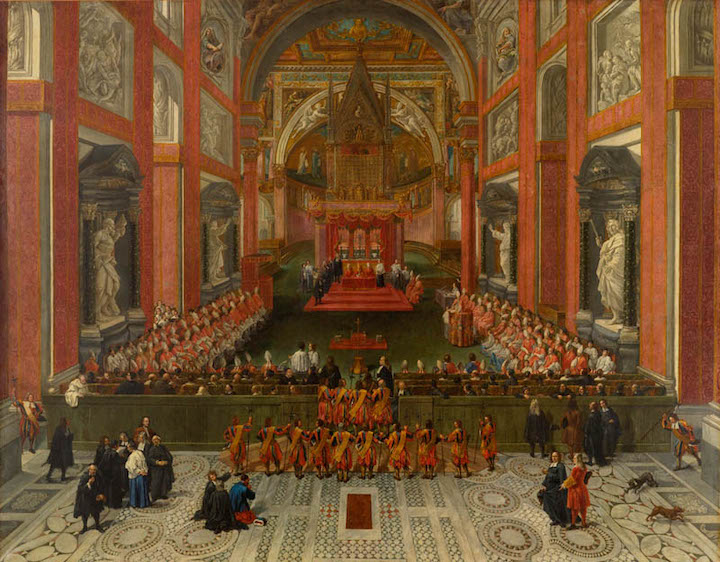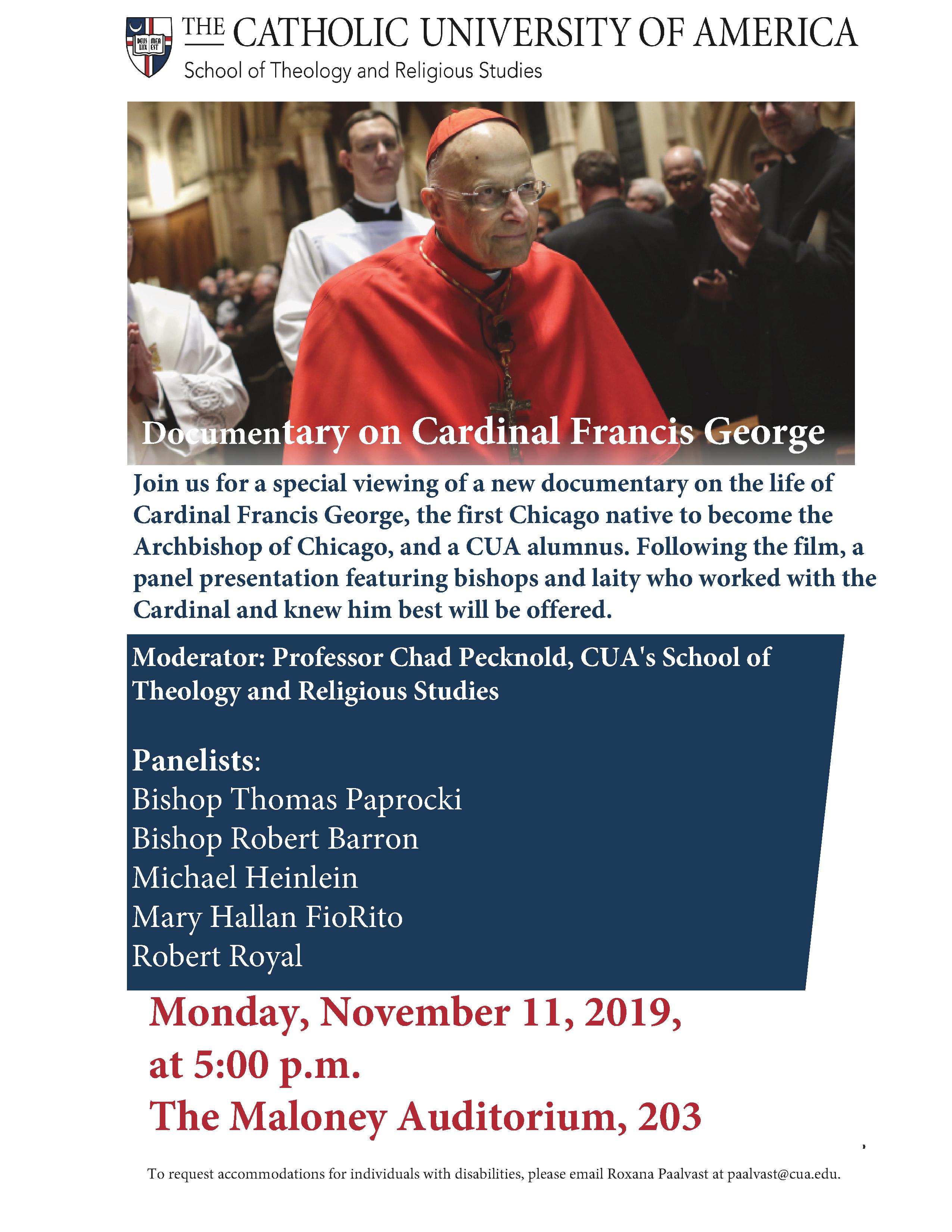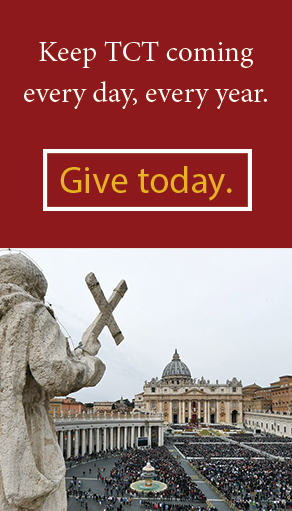In order to advance an agenda, one must have an agenda. It will have to be something outwardly positive, for advancing nothing wouldn’t count.
Hence the cornucopia, or welter of proposals that came with the Amazon Synod, and has come with every other “synodical” exercise by which Catholics have been afflicted through the last six years and seven months or so.
I thought I knew what a synod was, until recently; that I grasped the outline of its history and many of its associations. My mental picture was of a classical meeting of bishops, under their metropolitan, generally to affirm the faith on some substantial matter, or settle regulatory issues. It was the same thing as a council.
A meeting of world bishops under the pope was an “ecumenical council,” of grand significance, but not different in kind from a provincial or plenary session. It was not a parliament.
For we are a kingdom, not a republic or democracy. We are united under the Kingship of Christ, and our government is a hierarchy descending from Him. One is free to call that a tyranny or dictatorship, but that is not a Catholic view. In the Catholic view, in Christ is our freedom.
The pope, on this view, is head of the Church on this planet, but under Christ, not vice versa. He could be, in some abstract sense, himself considered the member of a synod that consists of all the popes. There have been scores and scores of them.
But drop this analogy. They do not meet at one time, at least in this world. And given that some popes are heretical, I would not think they could all meet together anywhere else.
“Synodality” has become “a thing,” in our day. The word is used in a vague way, based on a pop etymology, to mean “a walking together.” (Syn– is a prefix for “together,” hodos is Greek for “road.”) A moment’s thought will reveal that this is promotional hype, not a serious idea.
A classical scholar told me “meeting place” is closer. His example pleased me. The location of a great battle, where two armies meet, could be called a synod. The peace-love-grooviness of the event is not assured.
The idea that a synod could be called, to decide matters of Catholic doctrine, or to “interpret” it in any new way, is insane. At most it is called to ENFORCE doctrine when parties within its scope or ambit have strayed.
It is thus very much more likely to have a negative, rather than a positive, purpose; to be called not for an “agenda,” but to suppress one.
Though I, and most Christians I hope, hate committee meetings, there are people, such as Communists, who love them.
This, in itself, is hardly a matter of dogma, but I would say fairly confidently that any sort of leader who likes a lot of meetings should be looked askance upon. Worse is when he expects something to come of the meetings.
Rome has become a town in which they hold lots of meetings, and something is expected to come of them. Calling them “synods” somehow makes it worse, and filling them with clerics who have an “agenda” makes it worse still.
But worst of all is when these synods are called to propose “developments of doctrine” – using that phrase of Saint John Henry Newman in a sense precisely opposite to the way he used it.

The latest, “Amazon Synod,” was an especially foul example. Though supposedly pertaining to the Amazon, it was not held there. It was used to advance the pet projects of German and other post-modern (and post-Christian) “theologians.”
Among the worst lies was that it was done for the sake of Amazonia’s inhabitants, when in fact it was something done TO them. They are being deprived of Catholic teaching, and legitimate priests; they are being encouraged to embrace pagan idols, in primitive fetishes – and all for the sake of what was at best a media stunt, with narcissist strutting.
Elsewhere I have already applauded the work of the brave Austrian boys who removed five of these “pachamama,” tourist-market idols from a Roman church, regretting only that they had not the opportunity to destroy them.
Idolatry – a breach of the First Commandment – is an extremely grave matter. We must remember that millions of Christians have, over the centuries, accepted martyrdom rather than salute pagan idols.
The mockery of faithful Catholics by Pentecostals and Evangelicals, across Latin America and around the world, would be richly deserved if we did not take action. Meek condemnations, petition campaigns, and my pundit criticism are completely inadequate.
We live in a time in which we admit, into the innermost sanctuary of Holy Church, the most appalling filth. But it is also a time when the responses to this are weak-wristed and glib. This amounts to a disavowal of the martyrs.
One might say that our martyrs died for the sake of Catholic dogma; that our “modern” Catholicism has degenerated into a cult of “niceness,” with doctrinal adjustments to accommodate that.
In other words, Hell has no meaning for us, anymore.
We can’t imagine an act sufficiently evil, that we must, if necessary, sacrifice our lives. In this case, we even grumble that the Austrian heroes (the one whose interview I watched was very impressive) might have been guilty of “theft.”
Oh yes, get him a lawyer.
Perhaps one could say worse things about “modern” or contemporary Catholic practice, but I cannot think of them.
A hero of mine, from long before I became a Catholic, or he did, once defended dogma in an aesthetic way. He noticed that most modern Christians took the attitude, “I must endure the dogmas, for the sake of the sentiments that go with them.”
Which he contradicted thus:
“I must endure the chocolate-box sentimentality, for the sake of the dogmas.”
Readers in the Washington, D.C. area please note:

*Image: Benedict XIII Presiding over the Provincial Roman Synod of 1725, Basilica of St. John Lateran by Pier Leone Ghezzi, c. 1725 [North Carolina Museum of Art, Raleigh]

















